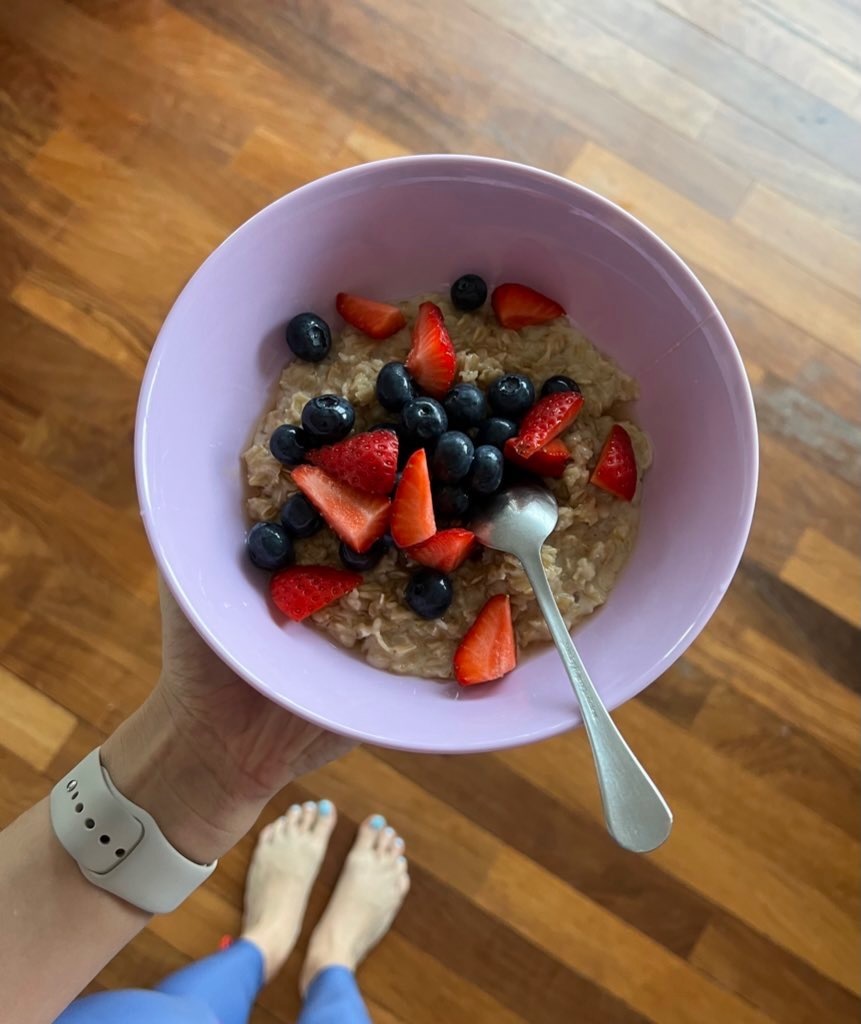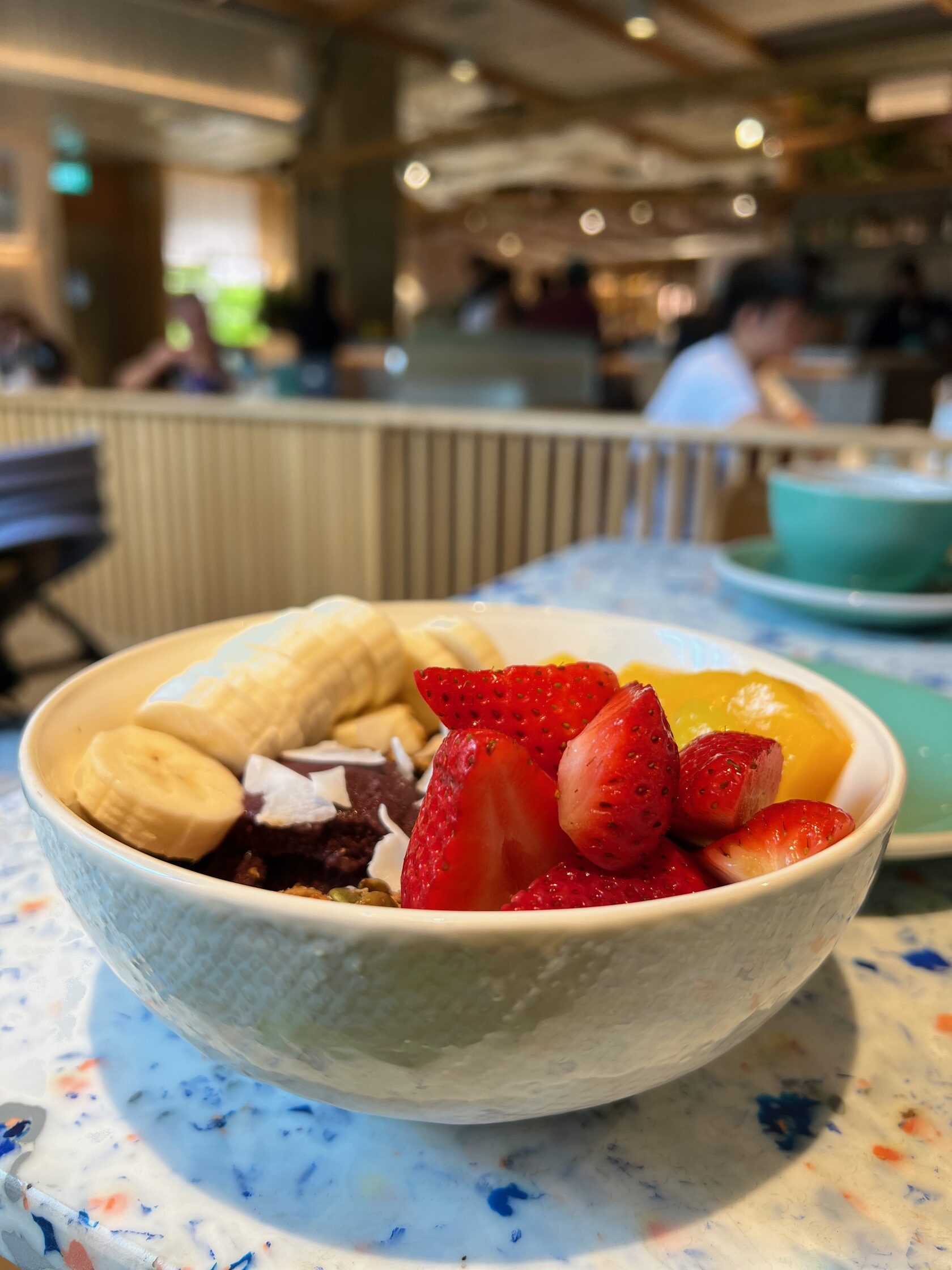Recommending a fast-digesting meal involves selecting foods that are easily broken down and absorbed in the digestive system. Here are the types of foods that would typically be recommended for their fast-digesting properties, along with the reasons why:
Simple Carbohydrates
- Foods: Fruits like bananas or berries, white rice, white bread, or other refined grains.
- Reason: Simple carbohydrates are composed of simple sugars that are quickly absorbed into the bloodstream, providing a rapid source of energy. They have a higher glycemic index, which means they cause a quicker rise in blood sugar levels.
Lean Proteins
- Foods: Egg whites, whey protein, lean poultry (like chicken or turkey breast), or white fish.
- Reason: Lean proteins are lower in fat, making them easier and quicker to digest compared to fatty proteins. Whey protein, in particular, is known for its rapid digestion and absorption.
Low-Fiber Vegetables
- Foods: Cooked vegetables like zucchini, tomatoes, or bell peppers.
- Reason: While fiber is beneficial for digestion, high-fiber foods slow down the digestive process. Choosing vegetables that are lower in fiber and cooked (which breaks down some of the fibrous structure) can ensure quicker digestion.
Low-Fat Foods
- Foods: Avoiding high-fat meats and dairy products; opting for low-fat versions if necessary.
- Reason: Fats take longer to digest than carbohydrates and proteins. Meals lower in fat will move through the digestive system more rapidly.
Hydration
- Foods: Water, herbal teas, or clear broths.
- Reason: Proper hydration can aid in the digestion and absorption of nutrients. Liquids, particularly those that are clear and free of caffeine or alcohol, can help in speeding up digestion.
Avoiding Certain Foods
- Foods: High-fiber grains, legumes, fatty meats, and dairy products.
- Reason: These foods are slower to digest. High-fiber and high-fat foods, in particular, can slow down gastric emptying.
When designing a fast-digesting meal, it’s also important to consider the overall balance and nutritional needs of the client, especially if they have specific health concerns or dietary restrictions. The goal is to provide a meal that is not only quick to digest but also aligns with their health and fitness goals.
Simple Carbohydrates
- Foods: Fruits like bananas or berries, white rice, white bread, or other refined grains.
- Reason: Simple carbohydrates are composed of simple sugars that are quickly absorbed into the bloodstream, providing a rapid source of energy. They have a higher glycemic index, which means they cause a quicker rise in blood sugar levels.
Lean Proteins
- Foods: Egg whites, whey protein, lean poultry (like chicken or turkey breast), or white fish.
- Reason: Lean proteins are lower in fat, making them easier and quicker to digest compared to fatty proteins. Whey protein, in particular, is known for its rapid digestion and absorption.
Low-Fiber Vegetables
- Foods: Cooked vegetables like zucchini, tomatoes, or bell peppers.
- Reason: While fiber is beneficial for digestion, high-fiber foods slow down the digestive process. Choosing vegetables that are lower in fiber and cooked (which breaks down some of the fibrous structure) can ensure quicker digestion.
Low-Fat Foods
- Foods: Avoiding high-fat meats and dairy products; opting for low-fat versions if necessary.
- Reason: Fats take longer to digest than carbohydrates and proteins. Meals lower in fat will move through the digestive system more rapidly.
Hydration
- Foods: Water, herbal teas, or clear broths.
- Reason: Proper hydration can aid in the digestion and absorption of nutrients. Liquids, particularly those that are clear and free of caffeine or alcohol, can help in speeding up digestion.
Avoiding Certain Foods
- Foods: High-fiber grains, legumes, fatty meats, and dairy products.
- Reason: These foods are slower to digest. High-fiber and high-fat foods, in particular, can slow down gastric emptying.
When designing a fast-digesting meal, it’s also important to consider the overall balance and nutritional needs of the client, especially if they have specific health concerns or dietary restrictions. The goal is to provide a meal that is not only quick to digest but also aligns with their health and fitness goals.




